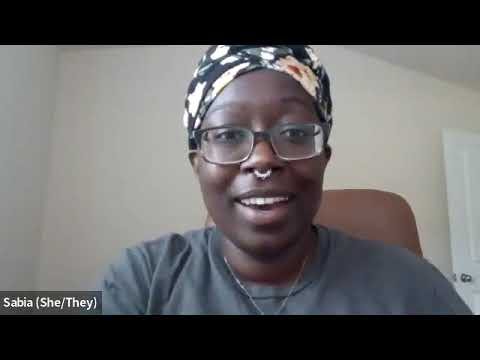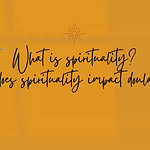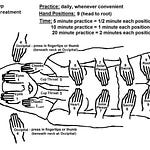http://www.mollyduttonkenny.com/live-workshops/intro-to-home-abortion-provision
http://www.mollyduttonkenny.com/workshops
http://www.mollyduttonkenny.com/
IG: @molly_duttonkenny
TRANSCRIPT
We apologize for the quality of this transcription, which was provided by Otter.ai
Unknown Speaker 0:03
Hello,
Unknown Speaker 0:04
Molly Dutton-Kenny, I always want to say your whole name, it's like, there's something about it. That's kind of poetic. I don't know what it is. I never just say like Molly like Molly Dutton-Kenny. Like, I have to say the whole thing. But thank you for being here. And thank you for having this conversation. Thank you for being down with the BADT from the very fucking beginning. You are you're ahead of the game. But if you could you please introduce yourself the work that you do where you're located. All that good stuff.
Unknown Speaker 0:38
Sure, yeah, thanks, my parents would be so happy to hear you say my full name. I actually changed my name a while back. But I still use this my like maiden name for most of my work. So it's funny to hear it said out loud. I don't say it very often. It's nice. Thank you for having me. It's really good to talk to you always. And really amazing to see everything that the BADT has done over the years and continues to do including this. So thanks. So yeah, so my name is Molly and I live outside of Toronto, in Canada, but I am American born and raised in Oakland, California. And I've lived in lots of parts of the world. But this is where I make my home now. I am a midwife. I have been working in birth for over a decade and been a midwife for the last six years or so. I primarily focus a lot of my education efforts on supporting loss and abortion from a midwifery perspective. And really kind of challenging a narrative that like the only safe way to have an abortion is with a highly medicalized system. I don't think that works for a lot of people. And so I'm very excited to work with alternative forms of abortion care, or traditional forms of abortion care. And that has bled into all kinds of pregnancy losses as well. And then I also like in my day job, help deliver babies. So I'm just gonna do that. But
Unknown Speaker 2:11
you have been one of our guest speakers at BADT for abortion conversation for years now. Because everyone just loves your approach. They love the information. And always, always, we we always hear good things about your conversation with folks. So obviously, we know right now that there is big things happening in this in this possible post row space that we're looking into. But one of the questions that I have for you is with ROE, and I know that you are from the US and working in Canada, are living in Canada. How does that affect Canada? Are we leading the way to destruction everywhere?
Unknown Speaker 3:00
As usual? Yes. Fantastic leadership worldwide. Yes, definitely. Canadians are nervous looking at what happens in America tends to have a significant influence on Canadian politics. Abortion is generally considered like a, like a done deal here in Canada, where we're like, yeah, we're not having that conversation anymore. That's been done. We're not revisiting it. And at this moment, most of our political leaders have reiterated that specifically and have been like, yeah, we're not reopening this here. It's done. We're good. abortion is legal and somewhat accessible in Canada. However, a lot of border towns are preparing for migration for people to get health care in Canada, similar that border towns and the southern border prepare for that everyone who lives in like, you know, Michigan and Idaho and like like this whole swath that borders up with Canada are preparing that way so all the abortion clinics here are hiring right now because they expect that we're gonna have a lot of demand. Wow, yeah.
Unknown Speaker 4:09
Wow. And I mean, it's so complicated too, because I you know, have read so many things about when people are trying to go into different places to have abortions and like, what people what I don't know what the government whoever is trying to do to stop that or to maintain that and someone was like, Are we The Handmaid's Tale, like, are we gonna tell people where we're going? Why we're going like, what? What is happening? But anyway, before we get to that torture, um, I would love for you to speak a little bit more about those traditional methods of abortion care.
Unknown Speaker 4:45
Yeah, thanks. Yeah, I do like to remind folks that like in a macro timeline of abortion, what we do now is like a small blip on the end of it, like this, like clinical care where we go see a doctor and pay a lot of money for someone to take care of our body is new. That's actually not the most common way people have had abortions historically. So, you know, every culture in every part of the world has ways of managing their fertility, including ending pregnancies and has for 1000s of years. And so those sometimes include using things like plant medicine, medications, sometimes include putting things into the body to take things out, though that's newer, systemic abortion is more common throughout the world. And then a whole bunch of like adjunct therapies like fasting or hyperthermia, like making the body really, really hot, sweating, things like that. It's an all kinds of like, kind of more holistic approach to making the body temporarily not a very hospitable place for a pregnancy and supporting the body while it's doing that. So I do like to remind folks like the answer is not to torture yourself, you can do your thing and nourish yourself while you're doing it, you know?
Unknown Speaker 6:04
Yes. And so like, with self managed abortion apps options, I guess, like in, in your practice, is that something like that's like a major point of your practice, because of the way that you educate. And the way that you were an advocate for it, is that something that you like, regularly are witnessing
Unknown Speaker 6:28
all the time. So that's the primary reason people reach out to me other than they'd like to have a baby is that they'd like to not have a baby. Like to not have to go to Planned Parenthood, or something else they can do? Or like, I read this recipe on the internet, and it has all these plants in it, like, is this gonna kill me? Or is this okay, so I have a lot of conversation with you.
Unknown Speaker 6:50
And I think that's like one of the things right, where, like, when we're talking about a post Roe, like environment, we know that abortions are going to keep happening. They're going to keep happening. And I was talking to my to bat students yesterday. And I was telling them like, obviously, there's a traditional routes to abortion care, but I was like, you have to learn from the right people. And you have to like, there's ways to go about that. So I wonder, like, Could you speak to maybe even like resources or whatever, because I'm like, it's gonna happen. We know it's gonna happen regardless. But our our point, it's like, how can we make this happen in the safest way possible? Understanding that herbal abortions, any self managed abortion can be very much safe, as long as we have the right tools.
Unknown Speaker 7:41
Yeah, I think that's a really good question. And I think I agree with you that the, like, traditional perspective on this is that then there was someone to ask to help you this like thing going on now, where you like order pills on the internet, and then do it by yourself in your bedroom is like, that's also weird. Like, that's not a traditional way, we usually had support. So definitely, I think learning from folks who have a little bit of knowledge and a little bit of wisdom to offer here. In some communities, that might be the people who have been historical providers, so people like midwives, or birth workers, other kinds of healers, body workers, things like that. Sometimes these folks have this knowledge, and that would be the right people to ask. Otherwise, there are some good kind of written accounts and some people who will teach. And yeah, I don't recommend just like googling herbal abortion. what's safe and what's not. And it like most things, do that now, not when you're in crisis, because you're, like weeks pregnant, and it has to be over, you know, what I mean? I feel like, ideally prepared ahead of time knowing that this Yeah,
Unknown Speaker 8:54
exactly. And I think like, that's the thing, right. And even when we think about birth, like people all the time, or like, My people get doulas or whatever the case is, and I'm like, because they have never learned about birth until they were pregnant. Right. And so now they need that support, to understand, like, what is actually happening, like I, you know, talk to me in it, and also be trying to work on the situation. And I think it's the same thing with abortion, right, where like, some people, most people and not because of any negative reason, but until you're in the situation, usually don't get the information. But now in this post real space, it's like, hey, build up the arsenal. Yeah, this thing case, yeah. Right. Do the information seeking get yourself set up? Like all of that? So I guess to like, what are your thoughts about the importance of community in this? Right? Like, how because because we know like we like I said, shit, gonna keep going. But it's more so about the community taking care of ourselves. So I would love to just hear your thoughts on
Unknown Speaker 9:57
that. Yeah, I agree. I think this is community work, it always has been, you can't expect someone to do something hard like this alone, unless they truly want to. But I think given a full set of choices, most people don't choose to do it sole li alone. So I think we need providers, like that's my biggest fan, like you want to learn how to do this shocker. Abortion is not that hard. It really isn't. So like, if you want to be a community provider, great, we need lots of those folks, especially now. But we don't just need that. And we don't necessarily need a community provider everywhere, a lot of that work can be done remotely. And then need in community are folks who are going to, you know, cook soup and and take care of you through this and work on your local advocacy and help with transportation. Like there's so many spaces that is needed. And so working in smaller, you know, collectives and with other folks who can work together, so that when people need emergency care, they can get it. And also that it doesn't feel like it's super draining on one person all the time.
Unknown Speaker 11:02
For sure, right sustainability. And we have to do this with a team with a community with whoever. I'm one of the things that you kind of mentioned, that made me think it's like, I guess in this current moment, and you working with midwives, and doctors and all of that. Do you see maybe even over the last couple of years, I guess, like an increase and providers wanting to gain this education? Yes. And I think we will get more of that now. But yes, I
Unknown Speaker 11:34
think there has been a steady increase over time. Not as much as I would have liked, like, definitely a lot of panicked emails in the last couple of weeks that are like, Okay, I said I would take classes, but now I really mean it. And I'm like, Okay, sure. So I think this will cause some folks to step up. I also think it's going to much more quickly promote what has been needed for a long time, which is collaboration between these worlds, and not just some underground herbalist having to refer to er, but I'm like, No, we need the local doctors who are willing to consult and treat us as colleagues who are providing, you know, similar services for people who have different needs. So I think that has been real slow going and might be shifting quicker, which is nice.
Unknown Speaker 12:20
Yes, we need that shift, right? Because we need everyone on hand like I always I do is like I'm not anti Doctor, I'm just anti doctor that's doing fucked up shit. Right. But a doctor, that's cool. Like, you're cool, right? Like, so I guess with that, you know, into this conversation. Like, like I said, birth Neo terrorism focuses on like innovation and like, how do we how do we create this future? What does it need to include? Even like, as a part of like, abolition, like we don't have to wait for the government to do it, in order for us to create the shit, right? Because we know they're gonna just keep doing what they do. So when you think about the future of birth, like one of the things, never for the future of abortion. One things you mentioned was that collaborative, collaborative approach between everyone so I guess maybe that'll be included. But I guess like, what else is included in that feature of abortion access? In your mind? Yeah, what's needed? Yeah, what what needs to be innovated, like, what
Unknown Speaker 13:21
I would like to see like a huge, like psychological and cultural shift around abortion, and I would like to be truly self managed. Abortion, like that term means nothing. Sorry. Like, it's a weird academic term that's really circulating right now where I'm like, every abortion is self managed. This is not like you're just describing, like, everyone manages their own abortion, but what they have to say these days is ordering pills online, I guess that's what it's supposed to be. I would like to see true Self Managed abortion, which would mean that we take out the providers and the all the other people as if they're the protagonist of this story. And instead the story is, is directed by the person who wants the abortion and so they're able to, you know, selectively choose what they want. So, okay, I want to see this midwife to talk about herbs. And then I want to go to this doctor for an ultrasound and make sure that it worked. And then I want this and everyone's just gonna be cool with that. Like, it's just not gonna be a big deal. It's that this is my experience, and I'm choosing how I want it to be. Well, I
Unknown Speaker 14:25
think that's such a good point. Right? Because, like, when you are you managing yourself, you know, it's your body, it's your things. But I think like when you talk about that truly self managed piece, it's like, even though you're managing yourself, it's like you don't always depending on your, where you are, what's going on, whatever. You don't always get choices know around these different pieces. Like I want to get an ultrasound over here that will make me feel better. I want to go you know, get this procedure here, or I want to do like, there is that missing that missing piece, right? Where you have to get your insurance card, if you have one. Right, if you have one, and then maybe get, you know, certain pieces done that can get cover, you know, I'm saying by using your network, even if that network with that location doesn't make you feel safe or honored, or you can't speak about what you're planning to do, like, you have, like all this this level, and it maintains a statement, it means it maintains that disconnected part of having a conversation about abortion.
Unknown Speaker 15:31
Absolutely. I mean, that's like supposedly based on choice. We don't have very much choice within the matter. It would be great, expanded and normalized that you can manage this however you want. That would
Unknown Speaker 15:46
be lovely. I mean, in all health care, right? Yes. Oh, gosh, I'll think about that more. Well, my last question to you. Because taking care of ourselves, creating a nice, you know, relationship with trauma healing for ourselves, because this work is traumatic. We can enjoy it. We can love it, but we see a lot of shit. How are you taking care of yourself?
Unknown Speaker 16:16
Yeah, great question. I waffle with it. Like I feel like some days are real good. And some days are not. But my like biggest practice in the last couple of weeks has been around drawing boundaries, specifically with my phone and with my time. And knowing that like everyone else's emergency is not necessarily my emergency. I planned and lived in this day for a decade, like this is not scary in that same way to me because I know what to do next. And I need to allow that to be my truth and not fall into everyone else's panic. So like, the other day, I made like a like a form reply to text message. And then I just texted it to 20 pending messages that I was like, Stop bothering me. Like, I will reply to you when I'm ready. Here's some other resources. Have fun, you know, and I feel like that was helpful. And that's unusual for me. I usually I'm like very trying to help every service. Yeah.
Unknown Speaker 17:14
Most of us were like, Okay, this this distant other, right, but that burnout doesn't actually help anything. It really doesn't. And I guess to like another thing that I will also accent it's kind of in the question around self care. But one of the things I've talked about with other guests is like the danger of being someone who's publicly supporting abortion, yeah. And how it can literally be dangerous, like, broadly, like people are doing a lot of things. So I guess my last last question to you is, how are you protecting yourself?
Unknown Speaker 17:51
Yeah, that's a really great question. I have been lucky that I live in a place with less threat and live in a body with a whole lot of privilege. And so I know that I face this differently than other people do. But I did a funny thing A while back, which was that I got married and changed my name, like I said, and so I actually live in my community under a totally different name than most of my abortion activism, which has been helpful for my family, frankly, like, they don't worry, as much. And it helps to build some, like more solid boundaries in my life. And then also, I am just selective about who I talk to, like I don't I don't reply to everything that comes through, especially when people are in a panic. So
Unknown Speaker 18:41
I definitely appreciate your time that you spent with me today. I know that you are in the middle of doing all the things people having babies, people choosing not to have babies. I mean, that in itself is a whole like shift and wait to hold. I can only imagine that shift. But I appreciate you. I appreciate the work. And also if there's any like resources, or things that you want to kind of like put out there right now or how people can find you have the space.
Unknown Speaker 19:12
Okay, yeah, thanks. Cool. I will send you a link. Maybe I am teaching a class in a week or two about this because I keep getting the same questions. And I'm like, I'll just to teach at once. So if you're if you're watching this, and you're like, I want to be an abortion provider, cool. Let's talk about it.
Unknown Speaker 19:33
Send a link so I can see you so I can come to you. So yeah, definitely send us that link. We'll definitely post it but like I said, Thank you so much for your work for your time for your patience because it's working easier. Again, also. Take care of yourself. For real.
Unknown Speaker 19:55
Thank you. I appreciate it. Thanks for making this time. Of course.
Transcribed by https://otter.ai















The Spectrums of Abortion with Molly Dutton-Kenny, CPM